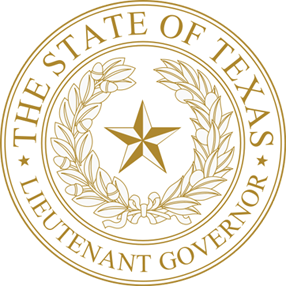As a conservative public official whose actual words have often been ignored and distorted by opponents and the media, I understand the critical importance of free speech, both on college campuses and off. Academic freedom helps ensure Texas students are exposed to a range of ideas and learn how to critically evaluate and challenge those ideas.
But “academic freedom” is not a shield for employees of state-funded universities to hide behind to escape any criticism of what they say and do. Many professors seem to believe they should have total control of all aspects of campus life, from curriculum to the hiring and firing of campus employees. They run off university presidents and chancellors who institute policies they don’t like.
Over the past few weeks, I have sat quietly as a group of professors at Texas A&M have flailed away with overheated rhetoric about my supposed interference with their “academic freedom.”
In March, I received a call from a University of Texas Medical Branch student’s parent, Land Commissioner Dawn Buckingham, about a statement allegedly made about me by a visiting A&M professor in her daughter’s class. What was told to me wasn’t a criticism of policy. That is part of being an elected official and doesn’t bother me. However, if what I heard was correct, it was a false and inappropriate personal attack on me.
I phoned Texas A&M System Chancellor John Sharp and simply asked him to look into the matter and determine what was actually said. I would do this on behalf of any student or parent who called our office with a similar complaint. My conversation with the chancellor lasted about a minute. Later I received a text from him saying the inquiry was proceeding. I never talked to him again about the inquiry, as it was ongoing.
It’s been reported that the professor has said that she had no issues with the inquiry and that her comment was taken out of context and misunderstood. It has also been reported that UTMB issued a censure and offered a public apology for any harm professor Joy Alonzo’s comment may have caused members of the community. She was put on paid leave but not fired. I accept the outcome from both UTMB and Texas A&M on this matter.
What followed is what concerns me the most. It is the ongoing outrage by the professors and their official “faculty senate” and, to some extent, the media. The A&M Faculty Senate has launched an investigation into, among other things, Texas A&M’s handling of Alonzo’s suspension. Their outrage seems based on the belief that anyone who dares ask a question about what is being taught or said in a classroom at a state university is somehow challenging their “academic freedom.”
Every student, parent, university booster, regent, chancellor, school president or legislator has the right to ask a question about campus conduct. Professors, who are largely funded by Texas taxpayers and students, are not above being held accountable.
Campus employees who coach sports understand what being held accountable means. A losing record will draw questions and criticism, often leading to their termination. Sports and academics are different, but all should be subject to a level of accountability.
This isn’t the first time a “faculty senate” has pushed back at me for holding them accountable. Last year, the University of Texas Faculty Council bluntly stated they are not accountable to the Board of Regents (appointed by the governor) or the Legislature. They affirmed their belief that no one can question them on any matter. In short, their position is to tell taxpayers and students: Give us your money (billions of taxpayer dollars), then shut up and stay out of our business.
In response, I helped lead the Legislature to pass a tenure reform package (Senate Bill 18) addressing the guaranteed-for-life jobs many professors enjoy. We also passed legislation to stop the destructive and discriminatory diversity, equity and inclusion offices on Texas campuses (Senate Bill 17). It is important to remember that Texas A&M failed to include white and Asian men in a list of underrepresented minorities who could be hired using a special recruitment fund. A&M is now being sued over the policy, including the director of what was the DEI office.
In the real world, outside the boundaries of a university campus, everyone is accountable at some level to someone — whether it’s their customers, employer, employees or shareholders. Professors should be no different.
Dan Patrick is the lieutenant governor of Texas.
(This Op-Ed also appeared in the Houston Chronicle)
